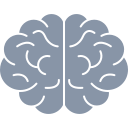Mind
Nurturing the Mind Naturally
Your mind is the gateway to clarity, peace, and overall well-being. In today’s fast-paced world, stress, mental clutter, and emotional imbalances can take a toll on our health—but nature offers powerful tools to restore harmony. Through mindfulness, holistic healing, and nourishing practices, we can cultivate mental clarity, emotional resilience, and a deeper connection to ourselves.
Your healing journey starts with small, mindful steps. Dive into each category to explore natural solutions, guided practices, and transformative insights that will help you cultivate a peaceful, resilient, and thriving mind.
Essential Areas to Focus on:
Mindfulness & Awareness
Learn how to cultivate presence, reduce stress, and find inner peace through meditation, breathwork, and self-reflection.

Stress & Anxiety Management
Discover natural ways to calm your nervous system with herbal remedies, grounding techniques, and sound healing.

Emotional Healing & Inner Peace
Release past wounds and embrace emotional balance through holistic techniques like EFT tapping, affirmations, and gratitude practices.

Cognitive Health & Brain Function
Nourish your brain with healing foods, herbs, and lifestyle practices that enhance memory, focus, and mental clarity.

Spiritual Connection & Higher Consciousness
Strengthen your intuition, align your energy, and explore higher consciousness through meditation and ancient wisdom.

Mental Detox & Digital Wellness
Clear mental clutter, reduce screen time, and create space for clarity and creativity in a world of digital overwhelm.
Why is mental wellness important for overall health?
Mental wellness is deeply connected to physical health, emotional balance, and overall well-being. When we take care of our minds through mindfulness, stress management, and cognitive health, we enhance our ability to heal, grow, and thrive in all areas of life.
How can natural remedies help with stress and anxiety?
Nature offers powerful healing tools like adaptogenic herbs, breathwork, grounding techniques, and sound therapy to calm the nervous system. Unlike pharmaceuticals, these holistic methods work in harmony with the body, helping to restore balance without unwanted side effects.
What are some simple ways to improve focus and mental clarity?
Improving focus starts with proper nutrition, hydration, and lifestyle habits. Brain-boosting foods, herbal supplements like Lion’s Mane and Ginkgo Biloba, digital detoxing, and mindfulness practices can all enhance cognitive function and mental sharpness.
How does mindfulness improve mental well-being?
Mindfulness helps reduce stress, improve emotional regulation, and increase self-awareness by keeping us present in the moment. Practicing meditation, deep breathing, or mindful journaling can bring a sense of calm and clarity to daily life.
What is the connection between gut health and mental health?
The gut and brain are closely linked, with the gut producing neurotransmitters like serotonin that influence mood and cognition. Eating probiotic-rich foods, reducing processed sugar, and maintaining a balanced diet can support both digestive health and mental well-being.
Can spiritual practices really improve mental health?
Yes! Spiritual practices like meditation, energy alignment, gratitude, and intuition-building can foster a deep sense of purpose and peace. Connecting with nature and tuning into higher consciousness can also help relieve stress and bring emotional balance.
How can I reduce mental clutter and overstimulation?
Decluttering the mind starts with simplifying your environment, reducing screen time, and practicing intentional breaks from social media. A daily mindfulness routine, journaling, and limiting exposure to digital noise can help create mental space and restore focus.
Where should I start if I’m feeling overwhelmed?
Start small! Begin with just 5 minutes of deep breathing or meditation each day, drink plenty of water, and try incorporating a stress-relieving herb like Ashwagandha into your routine. Healing is a journey, and small, consistent steps lead to powerful transformation.
Think you are the only one struggling… Your not
Take care of your mental wellbeing today!
Shop Our Store
Explore our collection of natural healing products and branded essentials designed to support your body, mind, and spirit.
Read Our Blogs
Discover our natural healing tips, herbal remedies, and mindful living insights to nurture your body, mind, and spirit.

